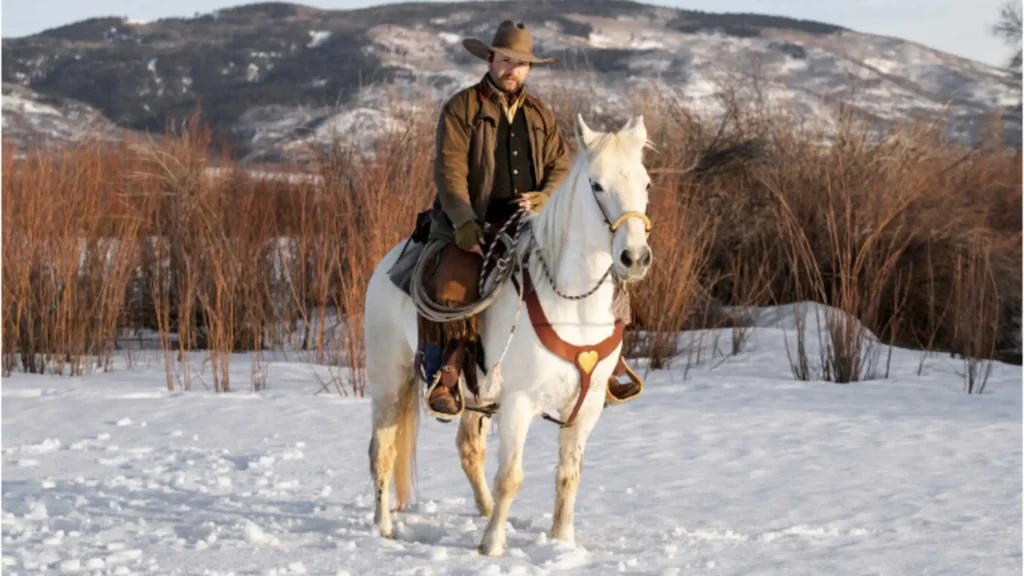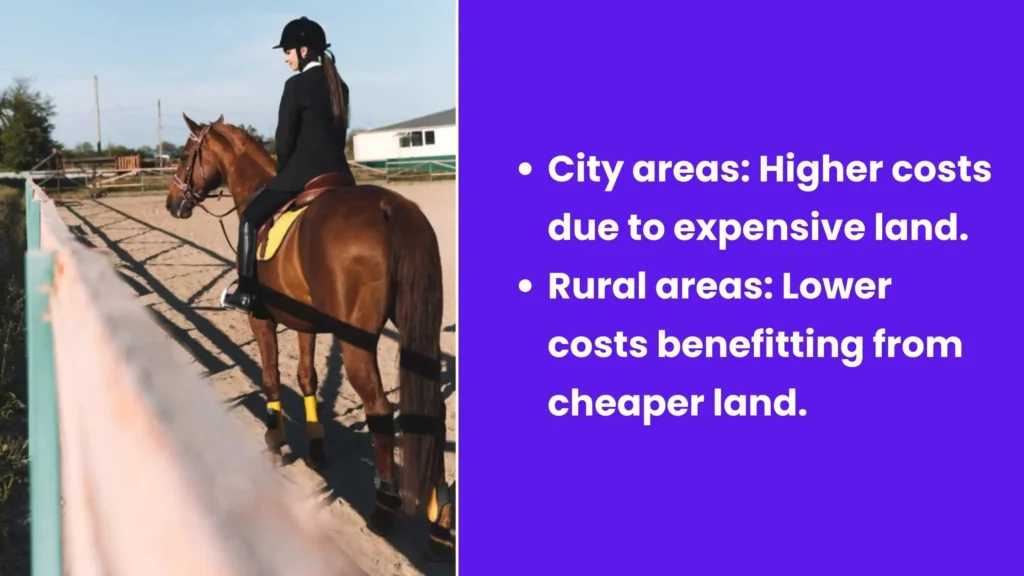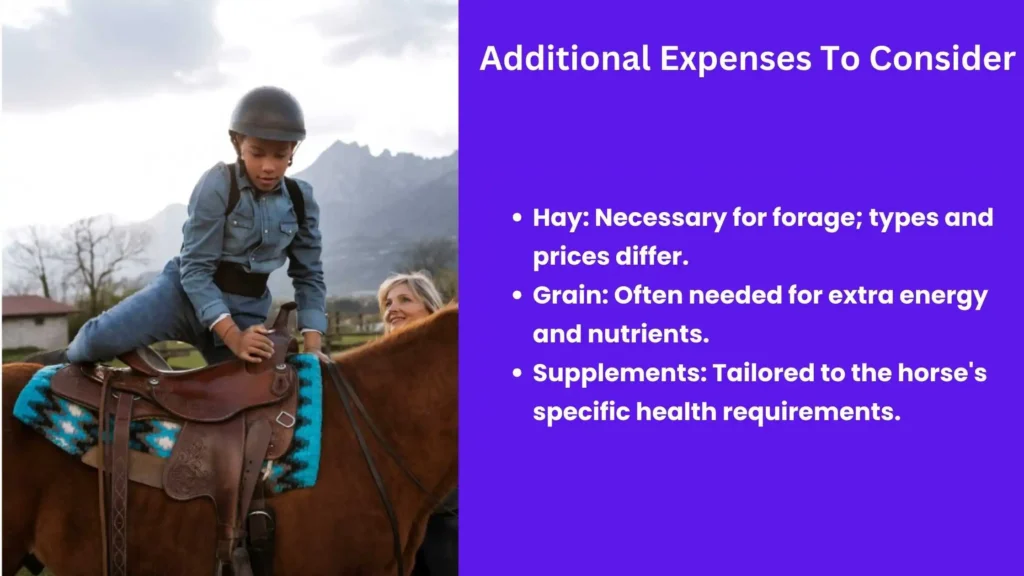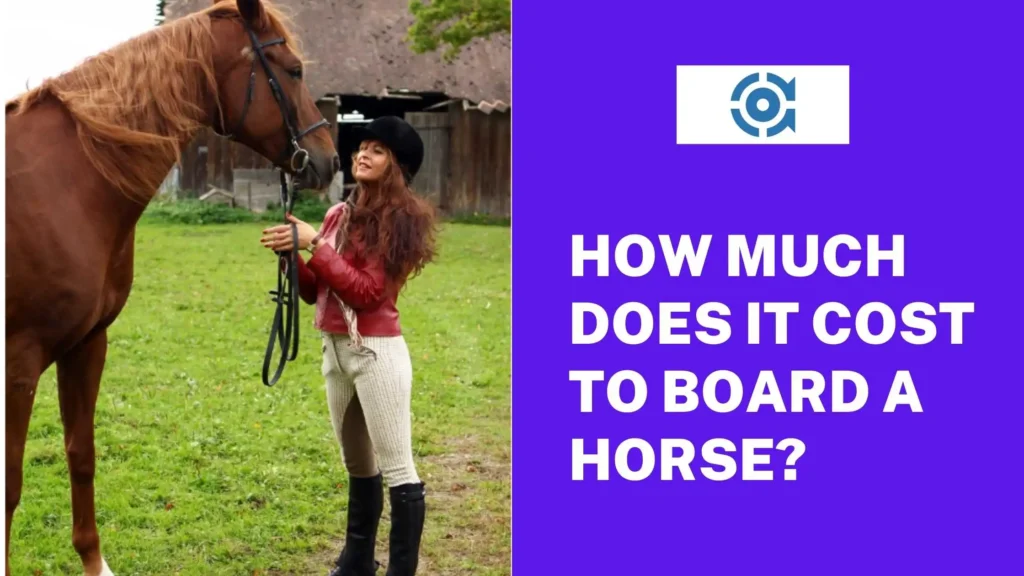Cost to Board a Horse typically costs between $300 to over $1,500 monthly (U.S.). The price varies based on location, facilities, and services offered.
Boarding a horse is a significant factor for equestrian enthusiasts to consider. It’s not just about finding a stable; it’s about ensuring your horse has a safe, comfortable place to live with the right amenities and care.
The cost of boarding can fluctuate widely, reflecting the type of board—whether it’s full-service, which includes feeding, stall cleaning, and turnout, or self-care, where the owner is responsible for daily maintenance.
The facility’s quality, from basic pasture boards to luxury stables with indoor arenas and professional training staff, also influences the price. Equine owners must weigh these options against their budget and their horse’s needs to find the best boarding solution.
Introduction To Horse Boarding

Horse boarding is like a hotel for horses. Owners pay to keep their horses at a special place. This place has all the things horses need to be happy and healthy. Let’s dive into why people board their horses and explore different types of boarding facilities.
Why Board A Horse?
- Space: Not everyone has a big yard for a horse.
- Care: Horses need a lot of looking after. Boarding places have experts.
- Friends: Horses and people can make new friends at boarding facilities.
- Facilities: These places have special areas for riding and training horses.
Types Of Horse Boarding Facilities
There are many places where you can board a horse. Each one offers different things. Here are some:
| Type | Features | Best for |
|---|---|---|
| Full Board | Everything is taken care of. Food, shelter, and exercise. | Busy owners. |
| Partial Board | You do some care, they do the rest. | Owners who want to be involved. |
| Self-Board | You do all the care. They just provide the space. | Owners who like doing things themselves. |
Basic Boarding Costs
Understanding the basic costs of boarding a horse is crucial for any owner. These expenses cover the essentials. They ensure that your horse has a safe place to stay with proper care. Each facility has different offerings and price points. Yet, some common costs are almost universal.
Monthly Boarding Fees
Monthly fees are the backbone of horseboarding costs. They can vary widely. Factors influencing these costs include the stable’s location, amenities, and services provided. Below is a breakdown:
- Self-care boarding: This is the most affordable option. Owners do much of the work themselves. It includes a stall and access to a pasture. Monthly fees range from $100 to $300.
- Partial care boarding: This is a mid-tier option. The stable provides some care. Owners handle the rest. Costs fall between $150 to $600 per month.
- Full-service boarding: This is the premium choice. It includes feeding, mucking out, and exercise. Monthly fees can be $400 to $2,000+.
Extra services can increase monthly fees. Examples include grooming, training, and special dietary needs.
Annual Boarding Budget
When planning an annual budget, consider the following:
- Monthly boarding fees: They add up over the year.
- Vet and farrier visits: Regular care is a must.
- Emergency funds: Set aside money for unexpected costs.
| Expense | Cost Range |
|---|---|
| Monthly Boarding | $1,200 – $24,000+ |
| Vet/Farrier Visits | $200 – $3,000 |
| Emergency Fund | $1,000 – $5,000 |
Remember, these are estimates. Actual costs will depend on your horse’s needs and your chosen facility.
Factors Affecting Boarding Prices

Deciding to board a horse comes with costs. These costs can change a lot. Several factors play a role in how much you’ll pay. Let’s explore the main ones.
Location And Regional Variations
The area where you plan to board your horse has a big impact on price. In cities or places near cities, prices are usually higher. This is because land and living costs more there. In rural areas, you might find it cheaper. This change in cost is due to the value of land and the cost of caring for horses.
- City areas: Higher costs due to expensive land.
- Rural areas: Lower costs benefitting from cheaper land.
Facility Amenities And Services
Different places offer different things for your horse. These can include basic care or more fancy services. The more services, the higher the cost. Here are some common services and amenities:
| Service/Amenity | Description |
|---|---|
| Stall Boarding | Indoor space for your horse. Includes cleaning and feeding. |
| Pasture Boarding | Outdoor living with other horses. Less cost but fewer services. |
| Training and Exercise | Extra services like training sessions or exercise programs. |
| Special Care | Includes medical care or special diet needs. |
Remember, more services mean higher costs. Always think about what your horse needs.
Types Of Boarding Arrangements
Choosing the right boarding arrangement for your horse is key. Different types offer various services. Let’s explore them.
Full Board
Full board is the most inclusive option. It provides everything your horse needs. This includes:
- Stable with bedding
- Food and water
- Regular cleaning
- Exercise sessions
This option is best for those without daily time for horse care. It’s the priciest choice.
Partial Board
With the partial board, you and the facility share responsibilities. This arrangement typically includes:
- Housing for the horse
- Basic feeding
You handle some care aspects, like exercise. It’s a mid-range cost choice.
Self-care Board
The self-care board is the most hands-on. You do all the work. The facility only provides space. This includes:
- A stall or pasture
- Access to water
You manage feeding, cleaning, and exercise. It’s the least expensive option.
Additional Expenses To Consider

Boarding a horse involves more than just the stall rental. Owners must budget for several other costs. These expenses ensure the horse stays healthy and happy. Let’s dive into the additional costs every horse owner should consider.
Feed And Bedding
Horses need quality feed and comfortable bedding. Feed costs vary based on diet and local prices. Owners often provide their own hay, grain, and supplements. This ensures the horse’s nutritional needs are met.
- Hay: Necessary for forage; types and prices differ.
- Grain: Often needed for extra energy and nutrients.
- Supplements: Tailored to the horse’s specific health requirements.
Bedding keeps stalls dry and comfortable. Choices include straw, wood shavings, or pellets. Costs depend on the material and stall size.
Veterinary And Farrier Care
Regular vet check-ups keep horses healthy. Emergency care can be expensive but is sometimes necessary. Vaccinations, deworming, and dental care are routine expenses.
Farrier services are essential for hoof health. Horses need hoof trims every 6-8 weeks. Shoes or special hoof care may increase costs.
Insurance Costs
Insurance can protect against unexpected costs. Medical insurance covers vet bills. Liability insurance protects the owner if the horse causes injury or damage.
| Type of Insurance | Purpose | Estimated Cost |
|---|---|---|
| Medical | Covers health care expenses | Varies by policy and coverage |
| Liability | Protects the owner | Depends on the policy limits |
Boarding a horse can be a significant investment. Always plan for these additional expenses. They ensure your horse’s well-being and your peace of mind.
Cost-saving Tips
Keeping a horse can be expensive. But, there are ways to save money. Here are some cost-saving tips to help you.
Negotiating Boarding Agreements
Boarding agreements are not set in stone. Talk to the stable owner. Ask for a better deal. Here’s how:
- Discuss long-term boarding discounts.
- Ask if paying in advance offers savings.
- See if there are services you don’t need, to lower the cost.
Remember, it never hurts to ask. You might save a lot!
Volunteering For Reduced Rates
Many stables offer a trade. Work for them, and they reduce your boarding fee. Here’s what you can do:
- Feed the horses.
- Clean the stables.
- Help with maintenance tasks.
This is a great way to be close to your horse and save money.
| Tip | How It Helps |
|---|---|
| Negotiate | Lower boarding costs through discussion. |
| Volunteer | Work in exchange for reduced rates. |
Questions To Ask Before Boarding
Starting on the journey of horseboarding involves careful consideration. It’s vital to ask the right questions to ensure both you and your horse’s needs are met. Explore these key areas to make an informed decision.
Evaluating Care And Facility Standards
Quality care and excellent facility standards are crucial for your horse’s well-being. Investigate these aspects:
- Staff Expertise: Are the caretakers experienced?
- Feeding Regimen: What type of feed and how often?
- Turnout Schedule: How much outdoor time is provided?
- Stable Cleanliness: Is the environment clean and safe?
- Emergency Plans: How are health issues handled?
Understanding Contract Terms
Read and comprehend the boarding contract. Look for these details:
| Term | Description |
|---|---|
| Duration | Length of the boarding agreement |
| Costs | Monthly fees and additional charges |
| Services | Included and optional care services |
| Termination | Conditions for ending the contract |
| Rules | Facility regulations to follow |
Making The Decision
Making the right decision about boarding a horse takes careful planning. Understand the costs involved to ensure the well-being of your horse without straining your finances.
Assessing Your Budget
Knowing what you can afford is the first step in boarding a horse.
- Determine your monthly income.
- List all current expenses.
- Calculate the leftover amount.
Boarding costs vary widely based on location, services, and facilities.
| Service Type | Average Cost |
|---|---|
| Basic Boarding | $300 – $700 |
| Full Boarding | $450 – $1,200+ |
Include additional costs like veterinary care, farrier services, and emergency funds in your budget.
Long-term Commitments And Exit Strategies
Boarding a horse is a long-term commitment. Be prepared for the journey ahead.
- Understand boarding contract terms.
- Know the notice period for leaving.
- Plan for unexpected changes in your life.
Having an exit strategy is crucial. Set aside funds or identify alternative arrangements if circumstances change.
Frequently Asked Questions
Is It Cheaper To Board A Horse Or Keep It At Home?
It depends. Boarding is often higher month-to-month than keeping a horse on property you already own, but home care adds facility, labor, and maintenance costs. Compare total costs and time for your situation.
What Does Horse Boarding Typically Include?
Horse boarding typically includes a stall, daily feeding, water, exercise, and basic care. Access to pasture and tack storage may also be provided.
How Much Does A Horse Cost Per Month?
Including board, many owners spend around $600+ per month in the U.S., with wide variation. Excluding board, day-to-day care can run about $200–$350, depending on care and health needs.
How Much Does It Cost To Board A Horse In Il?
Boarding a horse in Illinois typically costs between $400 and $900+ per month, depending on the facility’s amenities and services offered.
Conclusion
Navigating horseboarding costs can be complex, yet understanding the breakdown is essential. Whether it’s basic care or luxury amenities, prices vary widely. Always factor in location, services, and facilities when budgeting. Remember, the well-being of your equine friend is paramount.
Choose wisely, invest smartly, and enjoy the rewarding experience of horse ownership.


